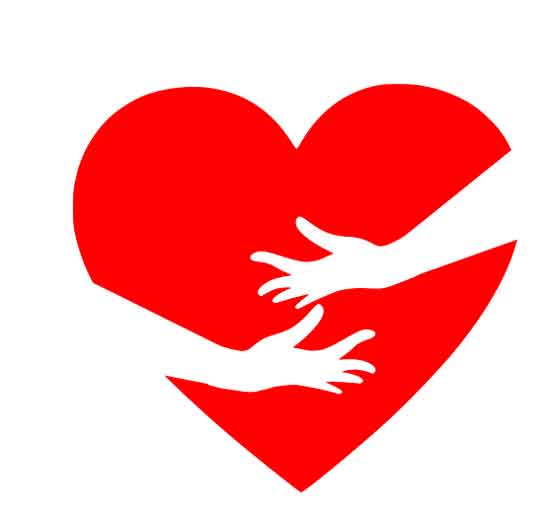
This week's reading, Terumah is the start of an intervention.
The Israelites seemed to be addicted to complaining. Their failures culminated in the tragedy of the Golden Calf. What strategy was employed to help shift their perspective?
The answer, writes Rabbi Lord Jonathan Sacks in Covenant & Conversation, is that G od commanded them to give. Being passive recipients of miracles did not have lasting effects on their personalities. They needed to unite and contribute collectively to a higher cause. Terumah, usually translated as "contribution," is better translated, according to Rabbi Sacks, as "something you lift up." By dedicating something to a higher cause, "You lift it up, then it lifts you up."
This essential message is embedded in another odd turn of phrase in Parshas Terumah. G od tells Moses that he should, "Tell the Israelite people to take for Me gifts" (Ex. 25:2). The people subsequently contributed an abundance of gold, silver, copper, yarns, linen, skins, wood, oil, spices, and precious stones to the Tabernacle. The use of the term "veyikchu" which literally translates as "take" instead of the word "give" ("veyisenu"), leaps out of the verse and demands explanation. If the goal is for the Israelites to give to G od, why does it say that they should take?
The 16th century commentator Rabbi Shlomo Ephraim Luntschitz (d. 1619), in his Keli Yakar interprets this wording as alluding to the notion that anyone who gives, receives more in return. G od rewards givers, in this reading, with more material success. Alternatively, the emphasis can be on the spiritual reward that emerges from giving. According to Rabbi Mayer Twersky (b. 1960), in Insights & Attitudes, this alternative perspective can be adopted to overcome any resentment that is engendered when asked to contribute to charity. After all, "[w]e are being approached for a finite sum, which, when given to a worthy cause, will yield eternal reward."
An additional reading of "veyikchu" is that the giver benefits psychologically by contributing. Money, the saying goes, does not buy happiness. This aphorism, however, doesn't tell the full story, according to researchers. It is true that money does not automatically lead to happiness; money presents many potential psychological pitfalls. However, often money is not the source of the problem. How we relate to, and—perhaps more importantly—how we use money, impacts our happiness levels. In "If Money Doesn't Make You Happy, Then You Probably Aren't Spending It Right," psychologists Elizabeth Dunn, Daniel Gilbert, and Timothy Wilson argue that money can indeed buy happiness if spent in the proper way. One important finding of their research is that people tend to be happier when they used their money to benefit others. By giving, they received the blessing of happiness.
Dr. Tal Ben-Shahar emphasized this message in his talk "Finding Joy in Crisis," launching the new Sacks-Herenstein Center book, An Ode to Joy: Judaism and Happiness in the Thought of Rabbi Lord Jonathan Sacks and Beyond. Dr. Ben-Shahar noted that when he speaks to non-Jewish audiences, he generally teaches them one Hebrew word, "nasan," which means to give. As Rabbi Elijah of Vilna pointed out centuries ago, the word is a palindrome, spelled the same way in both directions. When we give, we receive.
Dr. Ben-Shahar elsewhere elaborated on this point, referencing the work of Dr. Adam Grant, in his bestselling book, Give and Take: A Revolutionary Approach to Success. Dr. Grant emphasizes that givers are not only happier, but also enjoy more business success than takers. This being the case, perhaps the physical, spiritual, and psychological benefits are all interrelated. By giving, we become happier, more financially successful, and more spiritually elevated.
In the transitional stage between being passive recipients of miracles and active contributors to community and society, G od assigned the ultimate intervention that transformed the character of the Israelites. By being called on to contribute, people felt empowered. Through their charity, they felt happier. By giving, they received the blessings of material, psychological, and spiritual flourishing.
Character Challenge: Contribute to an important communal need. Pay attention to the outcome and notice your feelings after following through
Quote from Rabbi Lord Jonathan Sacks zt"l: "The best way of encountering G od is to give. The very act of giving flows from, or leads to, the understanding that what we give is part of what we were given. It is a way of giving thanks, an act of gratitude... That is how G od came to be close to the Israelites through the building of the sanctuary. It wasn't the quality of the wood and metals and drapes. It wasn't the glitter of jewels on the breastplate of the high priest. It wasn't the beauty of the architecture or the smell of the sacrifices. It was the fact that it was built out of the gifts of "everyone whose heart prompts them to give" (Ex. 25:2). Where people give voluntarily to one another and to holy causes, that is where the Divine Presence rests" ("The Gift of Giving," Covenant & Conversation)
Previously:
• Moral Refinement
• Moses' Emotional Exhaustion — and ours
• Moses' Emotional Exhaustion — and ours
• The Challenge of Patience
• The Blessing of Self-Awareness
• Adaptive Growth
• Redeeming Distress
• Choosing Life
• The Power of 'And'
• Moral Intuitions
• Was Noah an ethical person?
Rabbi Dr. Mordechai Schiffman is an assistant professor at Yeshiva University's Azrieli Graduate School of Jewish Education, the assistant rabbi at Kingsway Jewish Center, and a licensed psychologist practicing in Brooklyn.


 Contact The Editor
Contact The Editor
 Articles By This Author
Articles By This Author